What is a Colonoscopy?
Colonoscopy in Singapore is a procedure performed by gastroenterologists to check for any abnormalities in the lower gastrointestinal tract (colon and rectum) and to treat certain conditions.
This is a day procedure, so you will be able to leave the hospital on the same day, as the colonoscopy usually takes around 30 to 60 minutes to complete. The procedure entails inserting a long, flexible tube with a light and camera at one end through the anus and guiding it upward into the rectum and colon. Any tumours, inflammation or bleeding can be visualised easily, and biopsies (tissue samples) are sent for testing if needed. A colonoscopy can also be performed to remove small masses, such as polyps, which could be precursors to colorectal cancer.

“Colorectal cancer is the most common cancer amongst Singapore males and the second most common among Singapore females. However, it is a highly preventable cancer and screening colonoscopy is one such modality that can reduce your risk. If you are 50 or above or younger with colorectal cancer risk factors, make sure to discuss colorectal cancer screening with your gastroenterologist, even if your presenting complaint may have been due to another gastrointestinal condition”, advises Dr Benjamin Yip.
Why is colorectal cancer screening so important?
With Singapore being a country with a high incidence of colorectal cancer, the need for screening is of utmost importance. Early detection and diagnosis of colorectal cancer may increase the likelihood of a good outcome.
A majority of colorectal cancers develop from adenomatous polyps, and while most are benign, some polyps may be malignant. Screening can help detect these polyps and remove them before they become cancerous.
Who needs a Colonoscopy?

Adults aged 50
and above

For people with no
symptoms, to check
for any polyps
Colonoscopies are routinely offered to adults aged 50 and above for screening and early detection of colorectal cancer or earlier for certain higher-risk groups, such as those with a family history of colorectal cancer. A colonoscopy procedure in Singapore may also be recommended by your gastroenterologist if you show symptoms suggestive of a more sinister problem, such as rectal bleeding (blood in your stools) or iron deficiency anaemia.
The primary goals of screening colonoscopies for individuals without any symptoms are to look for any polyps (small growths) and to detect colorectal cancer in its early stages. If any polyps are found, they are removed and sent for testing to determine if they are premalignant or malignant (cancerous).
Colonoscopy: Diagnostic vs Therapeutic
Diagnostic
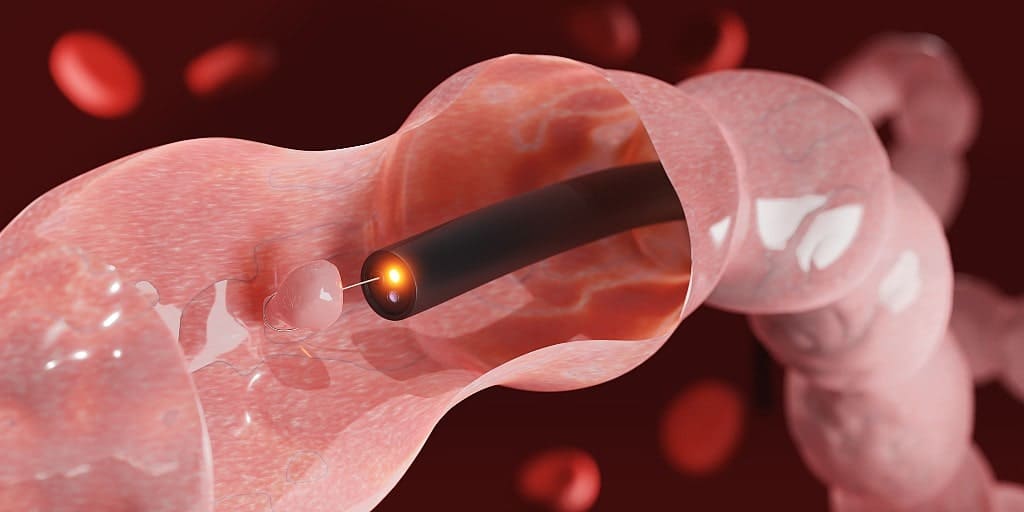
If you’re experiencing new symptoms related to your gut, such as abdominal pain, a recent onset of diarrhoea or constipation, a change in the size of your stools, unexplained weight loss, or blood in your stools, your doctor may offer a diagnostic colonoscopy.
A diagnostic colonoscopy is done with the purpose of identifying the cause of your symptoms and diagnosing the disease (if any). Some conditions that are commonly diagnosed on a colonoscopy include:
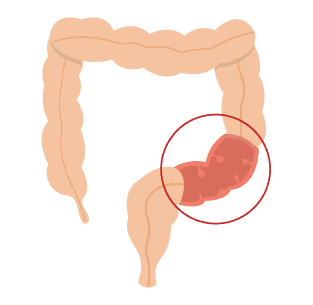
Colorectal polyps
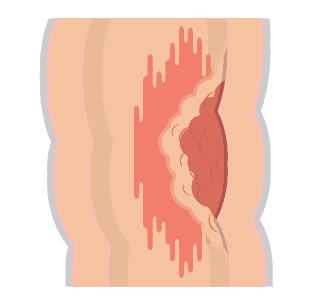
Colorectal cancer
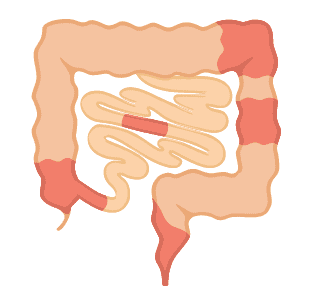
Crohn's disease
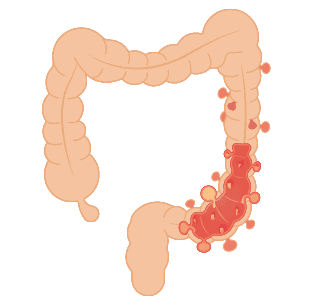
Ulcerative colitis
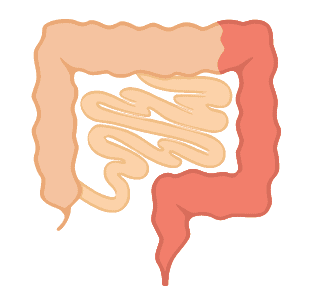
Diverticular disease
Therapeutic
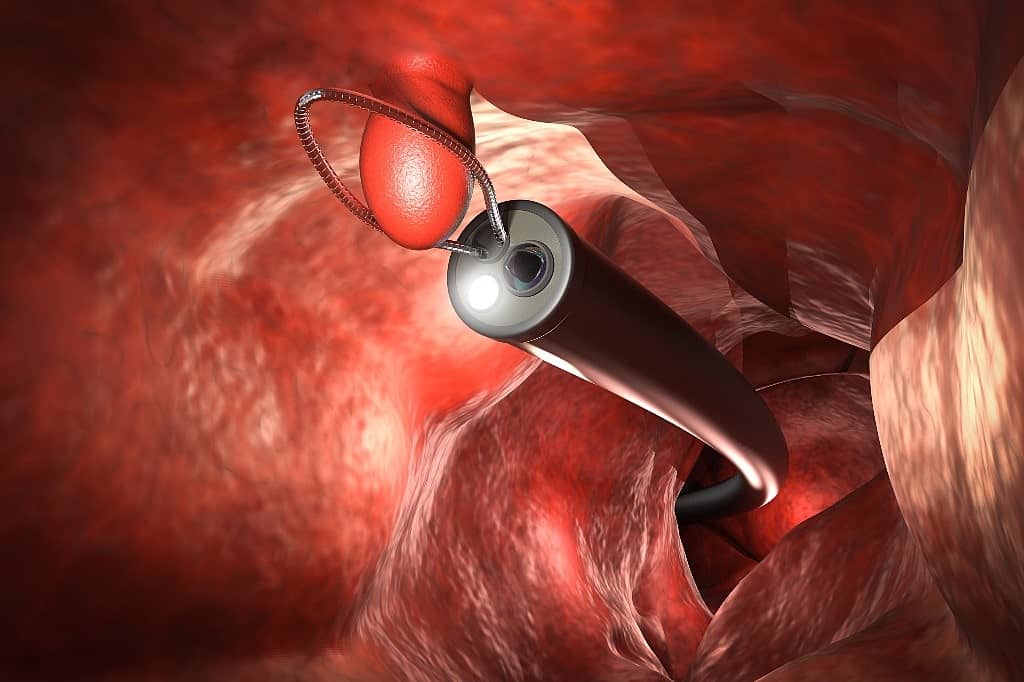
Therapeutic colonoscopy is used to perform minimally-invasive procedures in the colon or rectum, such as haemostasis (stopping bleeding), removal of abnormal masses, or foreign body extraction.
A majority of cases with lower gastrointestinal bleeding resolve on their own and do not require further evaluation. But some patients with diverticular disease, diagnosed vascular malformations, or recurrent bleeding tumours may experience bleeding that does not stop spontaneously. In such instances, endoscopic hemostasis may be offered, which simply means that the endoscope is used to locate the site of bleeding, and heat is applied to the area to stop the bleeding.
A stricture is a constriction of a part of an intestine that arises due to scar tissue that partially blocks it. This complication is commonly found in patients with inflammatory bowel diseases such as ulcerative colitis and can be easily treated through endoscopic methods like lasers or balloon dilation.
Some patients who present with late-stage colorectal cancer and are not scheduled for surgery may find that their intestine is completely blocked as a result of the massive growth of the cancer. In such cases, a colonoscopy can be used to insert a stent (a metallic “pipe” structure) to unblock the intestine.
What is the difference between a Colonoscopy and a Gastroscopy in Singapore?
A gastroscopy or OGD (Oesophago-Gastro-Duodenoscopy) is similar to a colonoscopy but the latter is used to visualise and treat problems affecting the large intestine and the structures adjacent to it.
An OGD, on the other hand, is used to visualise the upper gastrointestinal tract, including the stomach and duodenum and is helpful in looking for signs of inflammation, ulcers or masses in the oesophagus, stomach, and part of the small intestine. It is a short procedure and usually only takes around 15-30 minutes.
It also involves inserting a flexible, thin tube down one’s throat, with a camera attached to the end, and similarly allows the doctor to visualise any abnormalities and obtain a biopsy if needed. Pre-OGD preparation includes fasting for at least six hours, as the stomach needs to be empty so the specialist can have a clear view of your stomach.
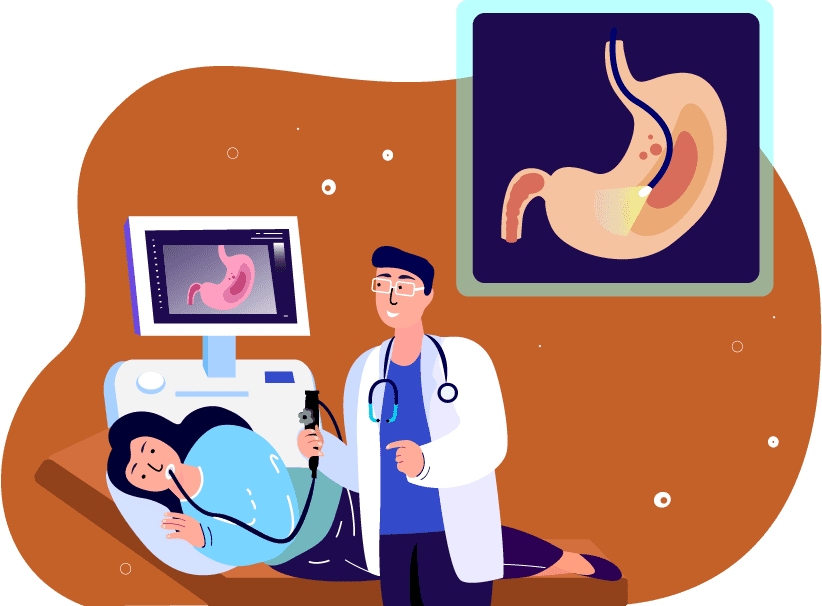
Pre - Colonoscopy Preparation
There are a few things you’ll need to do in the days leading up to your colonoscopy in Singapore, with bowel preparation being the most important. During a colonoscopy, your colon and rectum need to be empty and clear of all stools to give your doctor an unobstructed view.
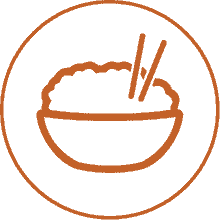
Consume a low
residue diet
(porridge, white rice)

Avoid cereal, nuts
or juices with fruit pulp

Approximately 6
hours before your
procedure, you will
be made to fast (no
food, but able to
drink water) and not
be allowed to drink
any fluids 2 hours
prior
Additionally, to clear your bowels completely, you may be given various laxatives in oral or enema form.
- Polyethylene glycol-electrolyte solution (PEG) comes in a sachet of powder that needs to be mixed in a large volume of water (two litres). For morning appointments, the PEG can be taken in two different methods – the first requires you to take the first dose in the evening on the day before your procedure. The second dose needs to be taken on the day of the procedure, around 4-6 hours before your colonoscopy in Singapore. The second method requires you to start drinking the solution in the evening and finish it on the same day at night. You may drink liquids until midnight during both options. For colonoscopy appointments in the afternoon, the PEG needs to be consumed in the morning before 10 am. This is a highly concentrated drink and serves to draw large amounts of water out of your intestines to flush out all faecal matter or undigested food particles. You will have multiple bouts of diarrhoea and may notice your stools become increasingly watery and clear-coloured. Once it has reached that appearance, your bowel preparation is considered complete.
- An enema is a liquid laxative that induces your bowels to empty and is generally administered 2-3 hours before the colonoscopy. You will be required to insert the nozzle of the enema bottle into your anus and dispense all the enema solution into your rectum. While enemas can be safely self-administered, some patients may require some assistance from a family member or health provider. Similar to PEG, it is a highly concentrated solution that will induce the urge to pass stools within 2-5 minutes.
Your doctor may also ask you to stop taking some medications, such as anticoagulants (blood-thinning medication) and other medications, a few days prior to the test. This is done to reduce the risk of bleeding, especially in the case of polyp removal during the colonoscopy.
Most patients are given light sedation during the colonoscopy for comfort, which might cause some drowsiness following the procedure. Therefore, it is advisable to get someone to accompany you home or arrange for transport after the appointment.
What can I expect during my Colonoscopy in Singapore?
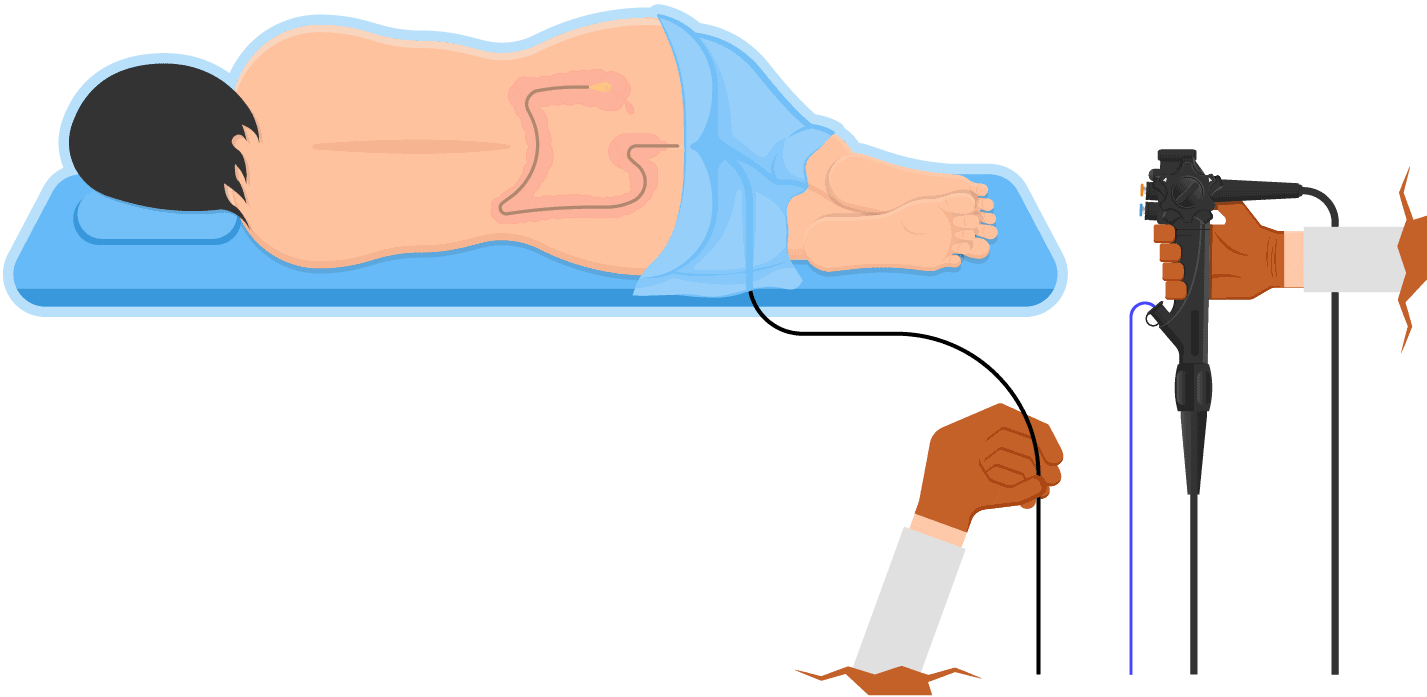
Once you are adequately sedated, you will be positioned on your side, with your knees curled up to your tummy.
The colonoscope will then be lubricated with a cool gel to allow smooth entry into the rectum. This insertion may initially cause a sensation of wanting to defecate. In addition, a small amount of air may be pumped into the large intestine to ‘inflate’ it and allow the doctor to get a clear view of the intestinal lining.If any abnormalities like polyps or masses are found, special tools may be inserted through the colonoscope to remove these.
A colonoscopy lasts around 30-45 minutes but may take longer depending on the number of polyps found and removed. The excised biopsy samples will be then sent to a lab for testing to ascertain if they are benign (harmless), precancerous or cancerous (malignant). These results generally take one to two weeks, and your doctor will arrange a follow-up appointment to advise you on the results.
Post - Colonoscopy
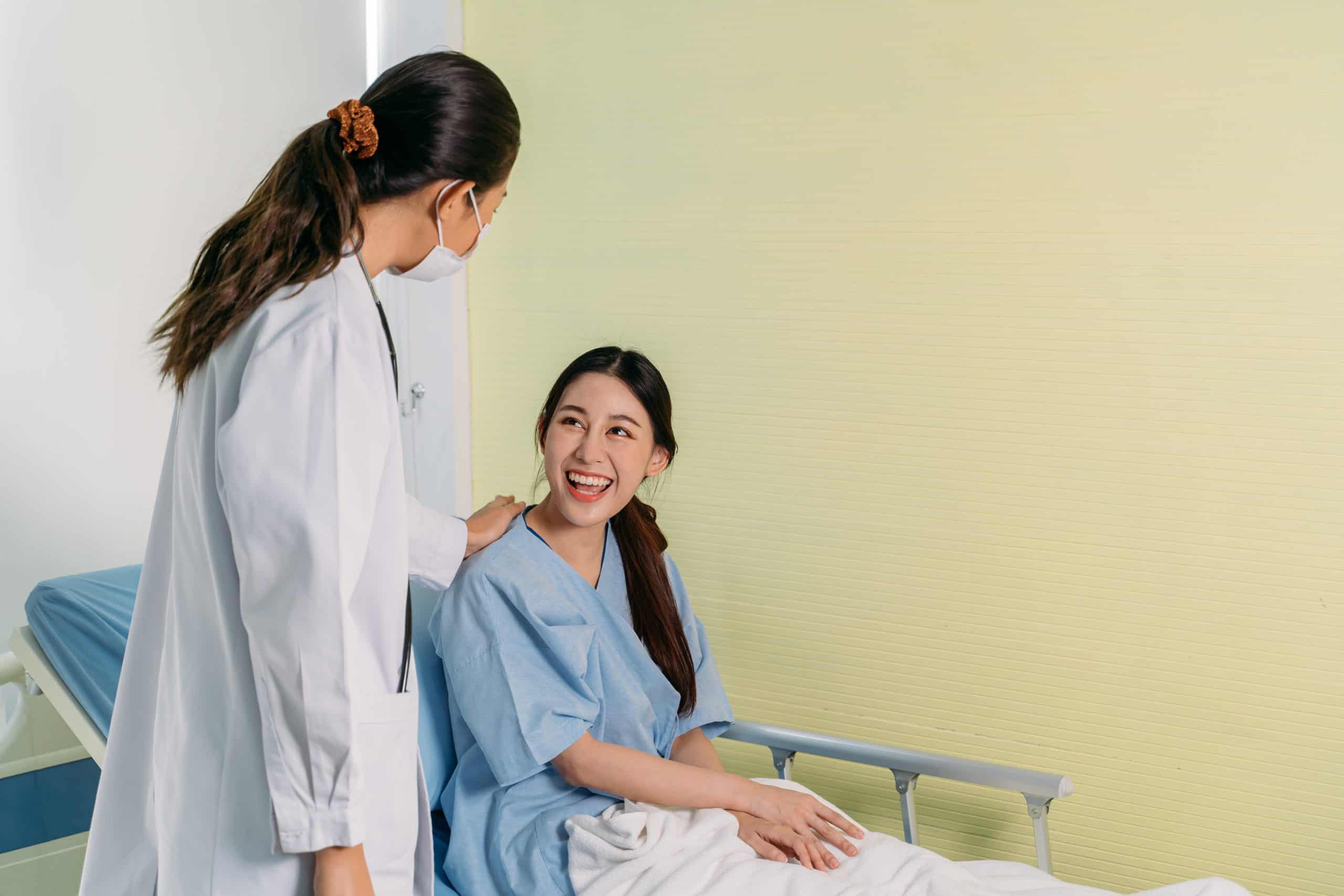
After the colonoscopy, you will be asked to rest for a while until the sedative wears off, and then you are free to leave. As mentioned earlier, we recommend you have someone accompany you home as you should not drive when drowsy.
Bloating and passing gas more frequently than normal is common after a colonoscopy, as air is pumped into your intestines during the procedure. It generally subsides within the day, and you can relieve the discomfort by walking or moving around.
A few days following your colonoscopy in Singapore, you may pass a small amount of blood in your stools, especially if polyps were removed. This typically resolves within a few days and is not a cause for concern unless it is accompanied by a fever, abdominal pain or a large amount of bleeding.
Are there any side effects and complications to a Colonoscopy procedure in Singapore?
A colonoscopy is generally a safe and routine procedure, but as with any procedure, there are some risks:
- Bleeding — For routine colonoscopies, the chance of bleeding is approximately 1 in 100. If any polyp removal or biopsies are done, the risk of bleeding is approximately 3%, and you may observe some blood in your stools around one to three days after the colonoscopy. However, major bleeding is extremely rare.
- Perforation (1 in 1000) — Very rarely, the colonoscope or instrument used to remove polyps may accidentally puncture the wall of the colon or rectum. Depending on the size of the perforation, surgical repair may be required.
- Anaesthesia — The risk of anaesthesia-related complications is low, as only light sedation is administered.
If you experience any unusual or prolonged side effects after the colonoscopy, do not hesitate to reach out to your colonoscopy clinic in Singapore for further advice and assessment.
Summary
A colonoscopy is a simple and routine procedure that is useful in screening for colorectal cancer and can also be used to diagnose or treat other common conditions in the lower gastrointestinal tract.
If you experience any of the mentioned abdominal symptoms or need to schedule a colonoscopy screening in Singapore, do not hesitate to consult a reliable gastroenterologist.
References
- Forde, KA. “Therapeutic colonoscopy.” PubMed, https://pubmed.ncbi.nlm.nih.gov/1455873/. Accessed 31 May 2022.
- “What is Colonoscopy? | How is a Colonoscopy Done?” American Cancer Society, 14 January 2019, https://www.cancer.org/treatment/understanding-your-diagnosis/tests/endoscopy/colonoscopy.html. Accessed 31 May 2022.
- “Colonoscopy Prep Instructions: Polyethylene Glycol 3350 Generic (Golytely, Nulytely or Trilyte)” Cleveland Clinic https://my.clevelandclinic.org/-/scassets/files/org/florida/digestive-diseases/colonoscopy-prep/colonoscopy-prep-polyethylene.ashx Accessed 31 July 2023
- “Screening for Colorectal Cancer” Health Hub https://www.healthhub.sg/live-healthy/106/screening_colorectal_cancer_nuhs Accessed 31 July 2023

